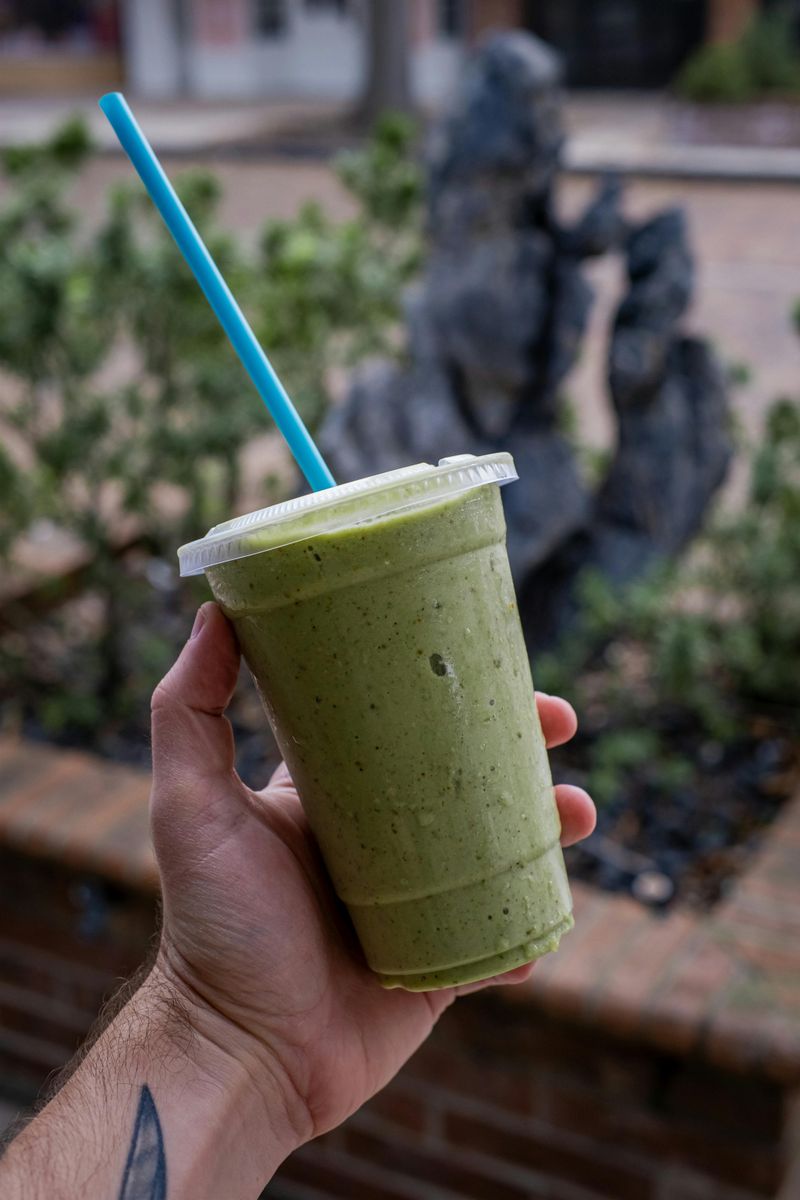13 Habits Adults Struggle With After Being Overweight as Kids

Childhood doesn’t just shape who we are — it quietly programs the habits we carry for decades. For those who grew up overweight, the experience can leave deep emotional fingerprints that show up long after the scale changes. Even if they’ve learned to eat better or move more, certain thought patterns and reactions can linger beneath the surface.
1. Emotional Eating

When emotions run high, food can feel like the oldest friend in the book. It’s not really about hunger — it’s about soothing something deeper. Those who grew up overweight often learned early on that a snack could dull pain faster than any pep talk could.
As adults, that coping mechanism sticks. Stressful job? Rough breakup? There’s comfort in that familiar crunch or sweetness, even if it’s temporary. Unfortunately, emotional eating rarely addresses the root problem — it just hits pause on it.
The cycle continues until people start connecting the dots between feelings and cravings. Recognizing that link is powerful. It’s not about cutting out comfort food altogether, but learning healthier ways to comfort the heart without stuffing it down.
2. Negative Body Image

Even after major weight changes, the mind doesn’t always update its mirror. Adults who were once overweight often see an outdated version of themselves — one shaped by years of teasing or comparison.
That distorted reflection can affect everything from confidence to relationships. They might avoid photos, downplay compliments, or dress to hide instead of express themselves. It’s as if the old voice saying “you’re not good enough” never quite shut off.
Breaking free takes time. Building a healthy body image isn’t just about liking what you see — it’s about rewriting the story behind it. Every scar, stretch mark, and curve tells a story of survival, not shame.
3. All-or-Nothing Thinking About Diets

Balance doesn’t come naturally to someone who spent childhood counting calories or being told certain foods were “bad.” Many adults fall into an exhausting cycle — perfect diet one week, total chaos the next.
This black-and-white thinking makes it hard to find middle ground. They’ll feel guilty for a cookie as if it’s a moral failure, then spiral into “I’ve already messed up, so why not go all in?” territory.
Sustainable eating means ditching the guilt and embracing flexibility. Food isn’t punishment or reward — it’s fuel and joy. Once that shift happens, it’s easier to stop chasing “perfect” and start aiming for balance.
4. Avoiding Exercise Out of Shame

Many people don’t hate exercise — they hate the memories that come with it. Childhood gym class, awkward team sports, or cruel comments about their bodies left a mark that’s hard to shake.
As adults, the idea of walking into a gym can still trigger anxiety or embarrassment. It’s not laziness; it’s self-protection. They’d rather avoid the risk of feeling judged than relive the humiliation.
Finding movement that feels good — not punishing — is key. Dancing in the living room, hiking, or yoga can rebuild that relationship. Exercise should celebrate what the body can do, not pay for what it used to be.
5. People-Pleasing Tendencies

Years of trying to fit in or avoid ridicule often create people-pleasers. It starts with wanting to be liked — or at least, not laughed at. When someone’s self-worth was tied to others’ approval early on, it’s a hard habit to break.
As adults, they might overcommit, say yes too often, or fear confrontation. The need to be accepted becomes so automatic that they forget to ask themselves what they actually want.
Learning to set boundaries feels uncomfortable at first, but it’s also freeing. True confidence doesn’t come from pleasing others — it comes from knowing you’re enough, even when you say no.
6. Difficulty Accepting Compliments

Praise can feel suspicious when you’ve spent years doubting yourself. Compliments about appearance or success might trigger discomfort or disbelief rather than pride.
That’s because deep down, there’s still a voice whispering that it’s undeserved — that if people “really knew,” they’d take it back. It’s the emotional residue of years spent being defined by weight instead of worth.
Accepting compliments with grace takes practice. It’s not vanity — it’s self-respect. The more someone allows good words to sink in, the more they start believing them for real.
7. Obsessing Over the Scale

A small number on a screen shouldn’t decide anyone’s mood, but for those who grew up overweight, it often still does. The scale becomes a daily test of worth, not health.
That mindset forms early, when every doctor’s visit or comment from a parent revolved around numbers. It’s easy to forget that muscle, hydration, and hormones all play roles too.
Freedom comes from focusing on how you feel, not what you weigh. Progress can’t always be measured — sometimes, it’s as simple as waking up with more energy and self-respect than yesterday.
8. Over-Apologizing

Apologies spill out of their mouths like second nature. Saying “sorry” for existing, for asking questions, for taking up space — it’s an old reflex built on years of feeling like a burden.
Growing up overweight often meant trying to make themselves smaller — not just physically, but emotionally. They learned to shrink themselves in conversations, opinions, even dreams.
Unlearning that starts with recognizing worth. You don’t have to apologize for taking up space. You earned it — and you deserve every inch of it.
9. Hiding Eating Habits

Some adults still eat like someone’s watching — even when no one is. Sneaking snacks or hiding wrappers can trace back to being judged as a kid for “eating too much.”
That secretive behavior is rooted in shame, not hunger. It creates a strange cycle where guilt fuels secrecy, and secrecy fuels guilt. The food isn’t the issue — it’s the fear of being seen.
Breaking the pattern means bringing food back into the open. Eating without shame, without judgment, and without hiding is one of the most powerful forms of healing there is.
10. Fear of Being Judged

The echoes of childhood criticism don’t fade easily. Adults who were once mocked or ridiculed often assume others are still watching, judging, or whispering.
That fear can limit everything — what they wear, where they go, even who they talk to. It’s exhausting to live as if every move is under review.
The truth? Most people are too busy worrying about themselves to judge anyone else. Once that realization sinks in, life gets a lot lighter — and a lot freer.
11. Yo-Yo Dieting

Losing weight, gaining it back, then repeating the cycle feels painfully familiar. For many, it’s not about lack of discipline — it’s about emotional baggage tied to food.
Dieting offers a temporary sense of control, especially when life feels unpredictable. But strict rules eventually backfire, leading to guilt, bingeing, and the inevitable rebound.
Sustainable change means shifting focus from appearance to well-being. Food and movement become tools for living, not punishment for existing. That’s where lasting peace begins.
12. Low Self-Worth in Relationships

Love feels tricky when you grew up believing you had to “earn” it. Many adults still fear being unworthy of affection unless they’re perfect — thinner, more successful, more accommodating.
That belief leads to overcompensating in relationships, settling for less, or tolerating disrespect just to feel wanted. It’s heartbreak wrapped in people-pleasing.
Healing starts by recognizing that worth isn’t conditional. The right partner won’t love you because you changed — they’ll love you because you’re real.
13. Perfectionism

Trying to get everything right often hides a deep fear of being judged again. If they can’t be perfect, they think, they’ll at least avoid giving anyone something to criticize.
Perfectionism looks productive, but it’s exhausting. It breeds anxiety, burnout, and constant self-criticism — all in the name of staying “safe” from rejection.
The truth is, imperfection is what makes people human — and likable. Letting go of that impossible standard is the bravest, and most freeing, thing anyone can do.

Comments
Loading…